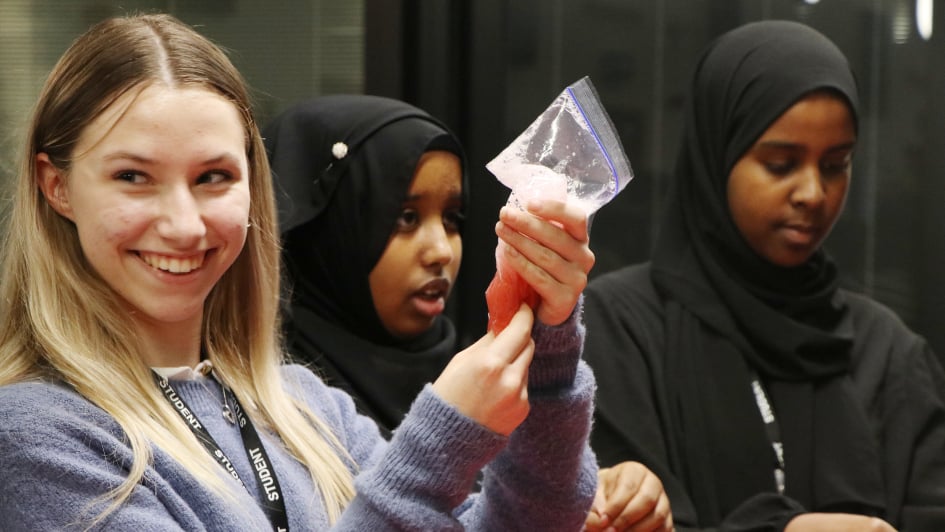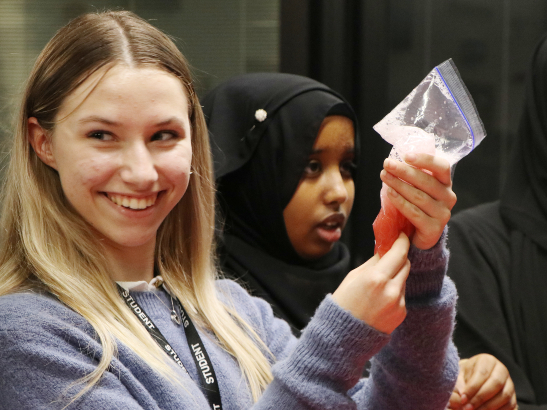
We’re very pleased with our performance in the first Knowledge Exchange Framework, a new measure from the UK Government’s science funding body Research England that assesses universities’ partnerships and influence on society.
Only three other higher education institutions – Imperial College London, the University of Oxford, and the University of Sheffield – matched our feat of scoring in the top 10 per cent, the highest mark available, in four categories.
It’s a mark of our success in the areas of knowledge exchange we are most focused on: categorized by Research England as ‘Working with business’, ‘IP and commercialisation’, ‘Research Partnerships’ and ‘Public and community engagement’.
The KEF
The ‘KEF’ is the latest survey to recognise our translational interactions, including our close collaborations with industry.
The EU’s latest U-Multirank exercise, for example, rated us amongst the world’s top universities in measures such as the number of research papers published with industry partners, and the number of our papers cited in patents.
A separate 2020 report published by the UK patent office on Higher Education Institution patent filings showed that we filed a higher proportion of our patent applications with an industry partner than any other higher education institution.
We ranked top in impact on society in the most recent Research Excellence Framework (REF) – Research England’s evaluation of academic research – as well as ranking top in research excellence overall.
Working in partnership
The KEF’s interactive dashboards show the results for each institution taking part, and explanations behind the metrics used to assess performance for each category.
Our scores in the Working with business, IP and commercialisation and research partnerships categories reflect our excellence in translating our research discoveries into new treatments and interventions for cancer patients.
Effective industry collaboration is at the heart of our approach to drive benefits for cancer patients: we are currently working with more than 100 companies, aiming to bring our discoveries to patients as quickly as possible.
We use any additional income generated through our commercial partnerships and collaboration work to fund more of our cancer research.
Record year
Despite the Covid-19 pandemic, we had a record year for industry collaboration in 2020-21. It’s a good sign for the sector overall, underlining the continued buoyancy of the life sciences industry despite Covid-19 and a host of other challenges including Brexit.
Highlights of our work in partnership with industry in recent years include the discovery and development of prostate cancer drug abiraterone, which is now a mainstay of prostate cancer treatment across the world. Since 2005, 11 cancer drugs discovered at the ICR have progressed into clinical trials – most recently the experimental drug EP0042.
Another recent highlight was last year’s public launch of Monte Rosa Therapeutics – a spin-out from research at the ICR, which developed a new library of potential anti-cancer compounds.
Our industry email newsletter Connections is packed with content on our latest work in collaboration with commercial partners.
Public engagement, local growth and regeneration
Whilst our rating for ‘Local growth and regeneration’ is lower than for the other measures, we expect this to increase substantially in future years as The London Cancer Hub project progresses – and particularly as we open the Innovation Gateway, a new incubator space for life-sciences companies to work alongside our scientists in Sutton.
This new development represents the first opportunity for companies to work directly with our scientists and clinicians from a base on site, and we are very excited about bringing in new tenants to further enhance our work in collaboration with industry to create new treatments for cancer patients.
The Innovation Gateway is just one early step in a long-term project that has major ambitions over the coming years.
And we were particularly pleased with our top score in the ‘Public and community engagement’ category, highlighting our excellence over several years in engaging with the public.
Recent highlights of our public engagement include a video about cancer drug discovery and development that supports the GCSE science curriculum in the areas of ‘how medicines are made’, ‘clinical trials’, ‘cancer’ and ‘chemical analysis’.
We can’t wait to get our programme of face-to-face events with school pupils and other members of the public up and running again. In the three years up to 2020-21, we took part in more than 260 public events, reaching more than 26,000 members of the public, and our staff and students contributed some 2,000 hours of their time to public engagement activities.
And our new public engagement strategy, covering the next five years, lays out our intention to even further build on our successes in public engagement, including through a major new strategic commitment to inspire greater future diversity in cancer research.
Knowledge exchange
Over the past decade, academic institutions have been placing more emphasis on the importance of making an impact outside their own walls – spurred on by Government initiatives like the REF and KEF, and increasing pressure from funders such as charities, which demand to see the societal outcomes from their funding.
Basic, fundamental science continues to be vital, of course – and a key strength of our research at the ICR too, as the UK’s leading higher education institution in biological sciences, as well as in impact and overall research quality (according to the REF).
But initiatives such as the KEF are also important in nudging UK universities towards making as big an impact as they can on society – and a welcome way to celebrate our success.
